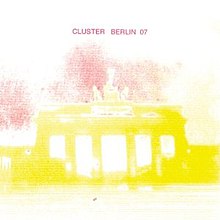
Konrad "Conny" Plank was a German record producer and musician. He is known for his innovative work as a sound engineer and producer in Germany's krautrock and kosmische music scene in the 1970s. Plank was involved in releases by Neu!, Kraftwerk, Cluster, Harmonia, Ash Ra Tempel, Guru Guru, Kraan, and other German groups of the era. He later produced for new wave acts such as D.A.F., Eurythmics and Ultravox. As a billed performer, Plank also formed the group Moebius & Plank, releasing 5 albums between 1979 and 1986.

Cluster were a German musical duo consisting of Hans-Joachim Roedelius and Dieter Moebius, formed in 1971 and associated with West Germany's krautrock and kosmische music scenes. Born from the earlier Berlin-based group Kluster, they relocated in 1971 into the countryside village of Forst, Lower Saxony, where they built a studio and collaborated with musicians such as Conny Plank, Brian Eno, and Michael Rother; with the latter, they formed the influential side-project Harmonia. After first disbanding in 1981, Cluster reunited several times: from 1989 to 1997, and from 2007 to 2010.

Harmonia was a West German musical "supergroup" formed in 1973 as a collaboration between members of two prominent krautrock bands: Cluster's Hans-Joachim Roedelius and Dieter Moebius joined by Neu! guitarist Michael Rother. Living and recording in the rural village of Forst, the trio released two albums—Musik von Harmonia (1974) and Deluxe (1975)—to limited sales before dissolving in 1976. AllMusic described the group as "one of the most legendary in the entire krautrock/kosmische scene."
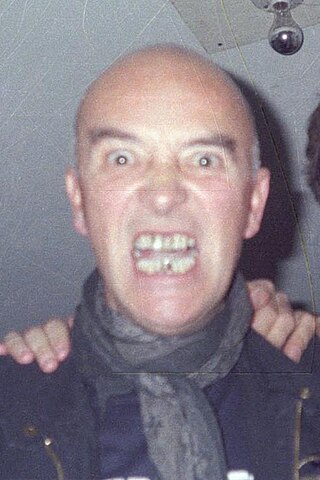
Conrad "Conny" Schnitzler was a prolific German experimental musician associated with West Germany's 1970s krautrock movement. A co-founder of West Berlin's Zodiak Free Arts Lab, he was an early member of Tangerine Dream (1969–1970) and a founder of the band Kluster. He left Kluster in 1971, first working with his group Eruption and then focusing on solo works. Schnitzler participated in several collaborations with other electronic musicians.

Michael Rother is a German experimental musician, best known for being a founding member of the influential bands Neu! and Harmonia, and an early member of the band Kraftwerk.
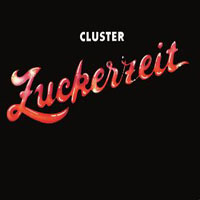
Zuckerzeit is the third studio album by German band Cluster, released in 1974 on Brain Records. It was co-produced by Michael Rother, their bandmate in side-project Harmonia. The music on Zuckerzeit marks a shift from Cluster's abrasive early work toward a more rhythmic, pop-oriented sound. Pitchfork ranked the album at number 63 on its list of the top 100 albums of the 1970s, while writer and musician Julian Cope included Zuckerzeit in his "Krautrock Top 50" list.
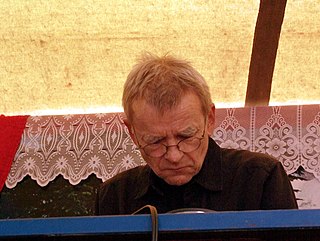
Dieter Moebius was a Swiss-born German electronic musician and composer, best known as a member of the influential krautrock bands Cluster and Harmonia.
Kluster was a Berlin-based German experimental musical group formed in 1969 by Hans-Joachim Roedelius, Conrad Schnitzler, and Dieter Moebius. Their improvisational work presaged later industrial music. The original Kluster was short-lived, existing only from 1969 until mid-1971 when Conrad Schnitzler left and the remaining two members renamed themselves Cluster. Schnitzler later revived the band from 1971 to 1973 and then from 2007 until his death in 2011.

Klaus Dinger was a German musician and songwriter most famous for his contributions to the seminal krautrock band Neu!. He was also the guitarist and chief songwriter of new wave group La Düsseldorf and briefly the percussionist of Kraftwerk.

Hans-Joachim Roedelius is a German electronic musician and composer, known as a co-founder of the influential 'kosmische' groups Cluster and Harmonia. He is notable for his prolific discography either as himself, as part of a band, or in collaboration with other artists. He has more than 100 releases with his name. He also performed in the ambient jazz trio Aquarello, and released several solo studio albums.
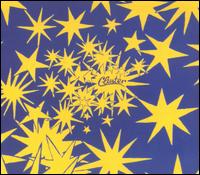
Cluster II is the second full-length album by German electronic music act Cluster, released in 1972 by record label Brain.
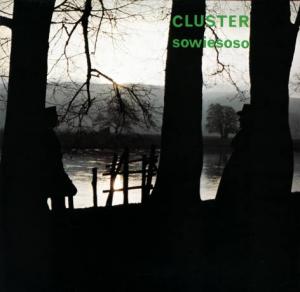
Sowiesoso is the fourth studio album by German electronic music band Cluster, released in 1976. It was Cluster's first release for Sky Records. Sowiesoso was recorded in just two days in Forst, Germany in 1976 and mixed at Conny's Studio in Wolperath.

Apropos Cluster is a full-length studio album by Dieter Moebius and Hans-Joachim Roedelius also known as German electronic music outfit Cluster. It was also their first album after an eight-year-long hiatus.

Musik von Harmonia is the debut album from the influential German krautrock group Harmonia, released in January 1974 by Brain Records. Formed by the addition of Neu! guitarist Michael Rother to Cluster, they recorded the album from June to November 1973 in Cluster's Forst recording studio. It was self-produced by the group using a primitive mixer and three tape recorders.

Deluxe is the second album from the West German krautrock group Harmonia, consisting of Neu! guitarist Michael Rother and the Cluster duo of Hans-Joachim Roedelius and Dieter Moebius. It was recorded in June 1975 in Harmonia's studio in Forst, Germany. It was first released on the Brain Records label in 1975.
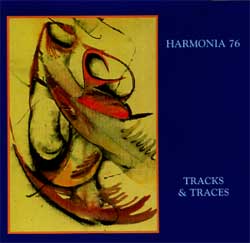
Tracks and Traces is a collaborative album by German kosmische supergroup Harmonia and British musician Brian Eno, initially credited to Harmonia 76. Eno joined the group at Harmonia's studio in Forst, Germany for the September 1976 recording sessions.
Moebius & Plank was a German electronic music duo consisting of musicians Dieter Moebius and Conny Plank. They recorded three albums between 1979 and 1986 as well as two additional albums, one a collaboration with Mani Neumeier and the other with Mayo Thompson. Plank died of cancer in 1987. Their final two albums were released posthumously in 1995 and 1998 respectively
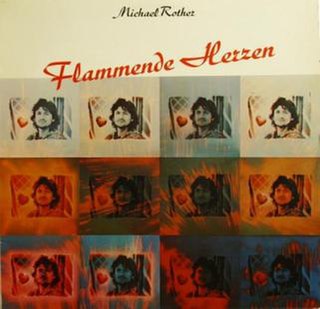
Flammende Herzen is the debut studio album by the German solo artist Michael Rother. It was released in 1977 and includes the single "Flammende Herzen" b/w "Karussell". The music was used the following year to soundtrack Flaming Hearts. It was Rother's first solo venture after having recorded five albums prior as a member of Neu! with Klaus Dinger and Harmonia with Hans-Joachim Roedelius and Dieter Moebius.
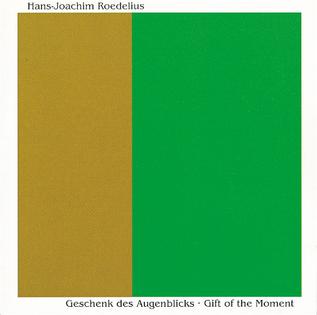
Geschenk des Augenblicks – Gift of the Moment is the eleventh solo album by German keyboardist Hans-Joachim Roedelius, best known for his work with Cluster, Harmonia, and Aquarello.

Live 1974 is the only live album released by the highly influential krautrock group Harmonia. It was recorded live in concert on 23 March 1974 at Penny Station in Griessem, Germany. The live album was released in 2007 by Grönland Records. Its release sparked enough interest in the group to convince them to reform in order to promote the album.
